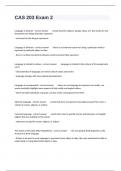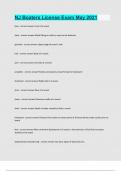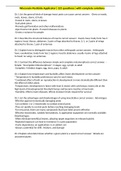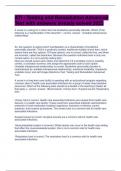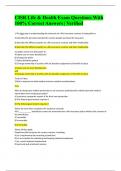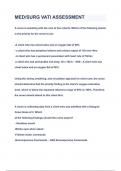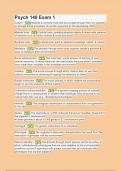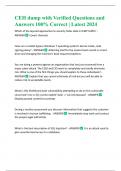Exam (elaborations)
CAS 203 Exam 2 Comprehensive Questions And Correct Detailed Answers.
- Course
- Institution
Language is abstract - correct answer - words stand for objects, people, ideas, etc. but words are not themselves the things that they represent - not bound to the thing it represents Language is arbitrary - correct answer - there is no inherent reason for using a particular word to r...
[Show more]
